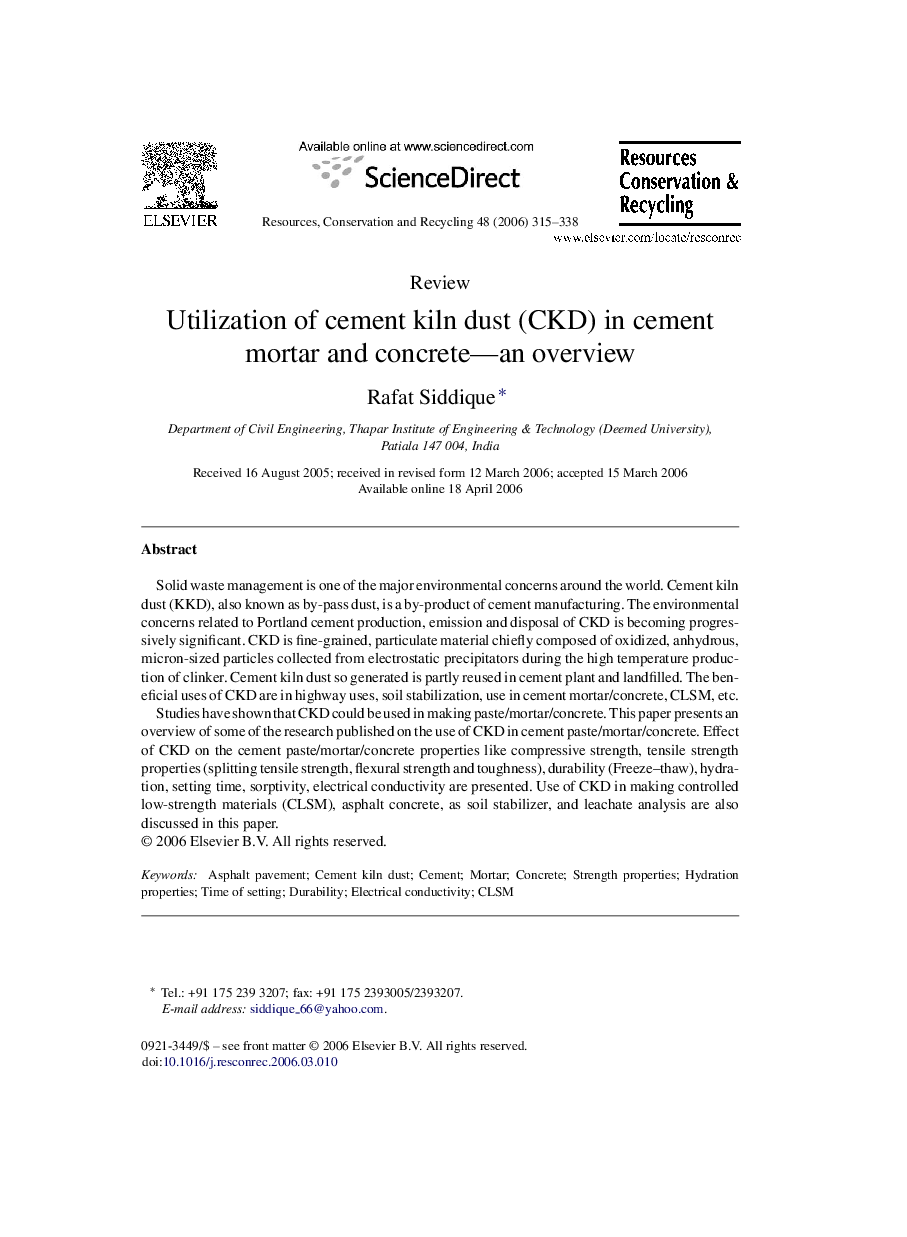| Article ID | Journal | Published Year | Pages | File Type |
|---|---|---|---|---|
| 1064163 | Resources, Conservation and Recycling | 2006 | 24 Pages |
Solid waste management is one of the major environmental concerns around the world. Cement kiln dust (KKD), also known as by-pass dust, is a by-product of cement manufacturing. The environmental concerns related to Portland cement production, emission and disposal of CKD is becoming progressively significant. CKD is fine-grained, particulate material chiefly composed of oxidized, anhydrous, micron-sized particles collected from electrostatic precipitators during the high temperature production of clinker. Cement kiln dust so generated is partly reused in cement plant and landfilled. The beneficial uses of CKD are in highway uses, soil stabilization, use in cement mortar/concrete, CLSM, etc.Studies have shown that CKD could be used in making paste/mortar/concrete. This paper presents an overview of some of the research published on the use of CKD in cement paste/mortar/concrete. Effect of CKD on the cement paste/mortar/concrete properties like compressive strength, tensile strength properties (splitting tensile strength, flexural strength and toughness), durability (Freeze–thaw), hydration, setting time, sorptivity, electrical conductivity are presented. Use of CKD in making controlled low-strength materials (CLSM), asphalt concrete, as soil stabilizer, and leachate analysis are also discussed in this paper.
